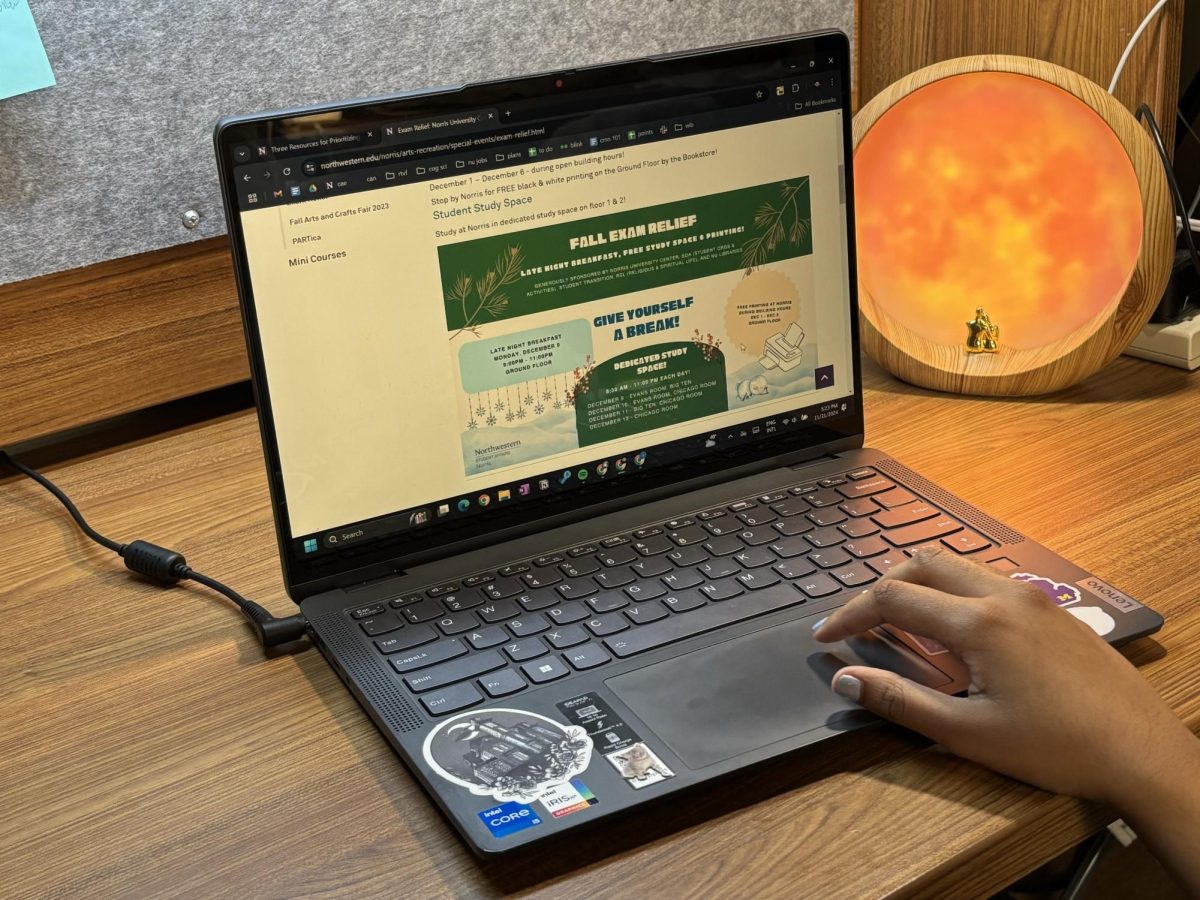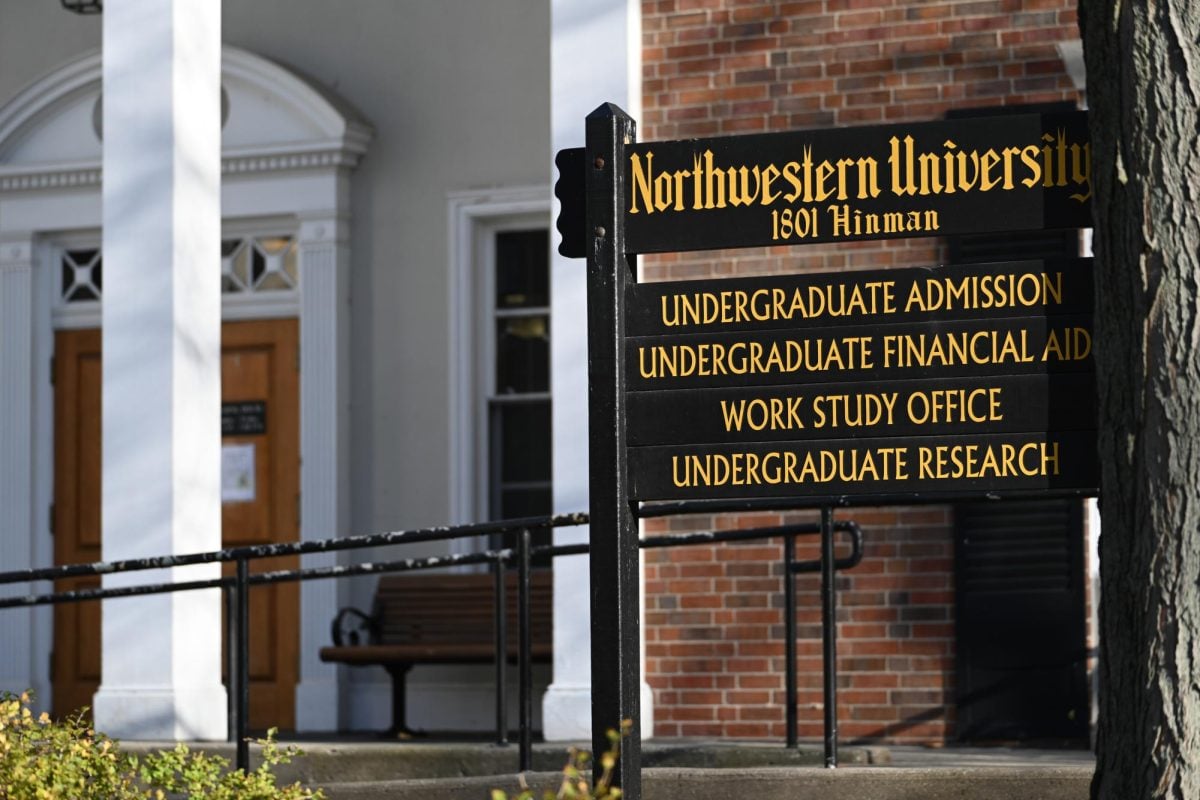Changes in Northwestern’s approach to environmental education may be imminent as both an Associated Student Government ad hoc committee and a group of faculty examine NU’s academic offerings.
A proposal submitted April 19 by the ad hoc committee recommended integrating the department of Earth and Planetary Sciences, the environmental science, engineering and policy program and the program in environmental policy and culture into one department, outgoing ASG Academic Vice President Muhammad Safdari said.
The Weinberg senior said the recommendation “is just a basis for discussion right now.” The faculty committee, of which Safdari was a member, proposed stop-gap measures to fix “low or no-cost issues,” he said.
“Essentially, they’re operating on a shoestring budget,” Safdari said. “The University hasn’t made a huge commitment to any of the environmental programs … In the long-term, they’re going to at least look at the potential of hiring people in environmental policy or environmental science.”
The faculty committee is still working on its report, said member and EPC Director Yael Wolinsky.
In an ideal world, Prof. Kimberly Gray, director for the ESEP program, said she would like the program to have its own department. ESEP is currently a cross-school program offering a major with classes in both the Weinberg College of Arts and Sciences and the McCormick School of Engineering and Applied Science.
“Can you really afford to ignore the challenges posed by a rapidly changing environment?” she said. “Look at our peer institutions. Look at the problems facing the world. Read The New York Times. Need I say more?”
Today, she said the department does well with “almost no budget.”
“Northwestern is one of the few that’s been able to come up with a program that functions across schools like this,” Gray said. “We really have developed something where students can move back and forth … With very little support, I think we’ve created something that’s been unique and really rewarding to the students.”
She said when NU originally re-evaluated the ESEP program in 2003 with the help of then-Weinberg Dean Daniel Linzer, they focused on creating an interdisciplinary, cross-school program despite programming more focused on biology and technology under former University President Henry Bienen.
The ESEP program began around 1990, Gray said, and was initially developed within the geological sciences department, now the department of Earth and Planetary Sciences.
“I think that Northwestern would want to go forward in finding a new synthesis rather than reflect backward,” she said. “(The department of Earth and Planetary Sciences) is not an interdisciplinary department. It’s not a department that looks at the earth system in a highly integrated way.”
Jackie Beard, a member of the ad hoc ASG committee and an ESEP major, said she appreciates the flexibility of the ESEP program.
“It allows me to pursue a lot of different areas of science without having to major in all of them,” the Weinberg junior said. “As a result, it’s kind of unstructured, and you get a lot of classes that aren’t really geared toward environmental scientists. They’re geared toward pre-med.”
Beard said the program had few resources available for majors and was not well organized.
ESEP and economics major Chelsea Baldino said she would “fully support” more funding for the program, particularly in ecology, but said the department had been very successful in helping her pursue off-campus research opportunities.
Another interdisciplinary environmental program, the Weinberg-based program in environmental policy and culture, is drawing plenty of students, Wolinsky said.
“If you think about environmental studies as a field it is really evolving,” she said. “One of them is sciences and one of them is the social sciences and humanities and so we cover different approaches to the problems.”
EPC “gives students an opportunity to look at very important environmental issues from social sciences perspective, but without prerequisites in science,” Wolinsky said.
“We have just started to develop the program really last year,” she said. “It’s been wonderful to see the growth in the programming … We’re kind of in the beginning of the road.”
She said a major in the EPC program should be “seriously considered.”
President Morton O. Schapiro told The Daily that program-specific issues were primarily a faculty concern.
“In terms of what should be a major, I don’t think that should come from (the Rebecca) Crown (Center),” he said. “I really don’t.”
Gray said she acknowledges the difficulty in creating a new department.
“That’s really, really expensive to do,” she said. “You need a donor.”
Still, both Gray and Wolinsky said their programs are growing.
“A day doesn’t go by where I don’t get an e-mail from a student wanting to declare the major,” Gray said.[email protected]






